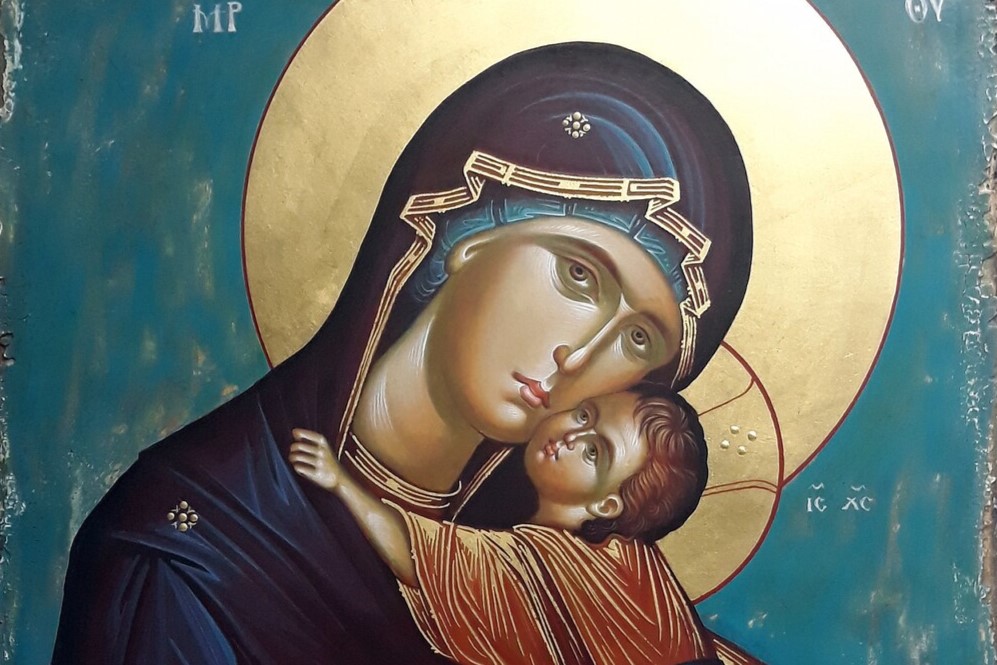- Home
- About us
- Students
- Courses
- Research
- Library
- News & Events
- Gallery
- Contact
- Our Blog
Latest News

Christian Love: The Antidote to Death

by Assoc. Professor Philip Kariatlis (Sub-Dean)
In the joyous Advent season that we now find ourselves in, awaiting and preparing for the birth of Christ within the world, it is most appropriate, perhaps, that we reflect on the quintessential message of the Gospel ushered into the world with Christ’s presence on earth.
As we all know, the love of Christ, and by extension the love of our Trinitarian God, captures the very essence of the Christian Gospel. “God is love [ὁ θεὸς ἀγάπη ἐστίν]” (1Jn 4:8) we read, rather simply yet most profoundly, in the first letter of St John the beloved Apostle. God’s love is founded on sacrifice, on compassion and forgiveness; indeed, it is a love so powerful, that it alone is capable of transcending human weakness and societal divisions. It alone is capable of disrupting the cycle of hatred and violence; love alone finds solutions and ways forward when human beings solely see irresolvable and immovable impasses. Ultimately, it is this love of God, that we behold personified in the person of Jesus Christ, which alone has the ability to sprout forth the gift of enduring life out of the finality of death. It is in this sense that God’s is totally unrelated to any sentimentality, but is marked by its faithfulness to the ‘well-being [εὖεἶναι]’—indeed, as we shall see, the ‘eternal-well-being [ἀεὶεὖεἶναι]’—of all creation.
In light of this, the power of Christ’s love and its centrality within the Christian message, we must never grow weary of proclaiming the ‘Good News’ of God’s love—a love which transcends the confines of this world ushering us into life beyond the grave. In His response to Martha, Jesus says: “I am the resurrection and the life. Those who believe in me, even though they die, will live [κἂν ἀποθάνῃ ζήσεται], and everyone who lives and believes in me will never die [οὐ μὴ ἀποθάνῃ εἰς τὸν αἰῶνα]” (Jn 11:25). Elsewhere in the Johannine Gospel we recall the words which arguably summarise the entire Gospel: “For God so loved the world that he gave his only Son, so that everyone who believes in him may not perish but may have eternal life” (Jn 3:16). The power of the Christian message is precisely God’s enduring and unfading love which liberates the human person from the confines of their created imprisonment.
The great apostle to the nations, who went to the ends of the earth proclaiming this very same message of the victory of Christ’s love over death, writes in his letter to the Ephesians: “But God, who is rich in mercy, out of the great love with which he loved us… made us alive together with Christ [συνεζωοποίησεν τῷ Χριστῷ]” (Eph 2:4-5). It is this love which sets the world free from the fear of death; a love which far exceeds our time here on earth; one which promises to extend beyond the grave, stretching forth into the endless horizons and into the sweet fragrance of Christ’s eternal kingdom.
Ultimately, it is this life-begetting love of God which can truly console the human ‘spirit’, unable find rest in anything ephemeral. It is the ‘breath’ of God (cf. Gen 2:7) in every human being, innately moving them forward towards the freedom of eternity, the eternity of love, which fulfils our deepest yearning for meaning. And it is the Church alone, as the miraculous presence of our loving God here on earth, which can offer this heavenly gift of love and immortality; the Church alone proclaims, as She has done so throughout history, that life has no end; that we were created for eternity; and that love is the antidote to death, to the extent that Christ, through His love which has vanquished death, has bequeathed upon His Church the promise of a life extending beyond the grave.
It is precisely for this reason that in our witness to the world, we must never grow weary of proclaiming the “one thing that is needful [ἑνὸς δέ ἐστιν χρεία]” (cf. Lk 10:42), namely, the ‘Good News’ that through Christ’s inexpressible love “death has been trampled upon” and the entire cosmos is now gifted with everlasting life and immortality; and ultimately that no matter the sheer hopelessness and desperation of any circumstance, we are all loved!
This transformative gift of love ought to inform the way we relate to the world: inspiring acts of kindness and charity to those around us; having experienced the love of God—“who did not withhold [even] his own Son, but gave him up for all of us,” as St Paul tells us (Rom 8:32), leading him to ask rhetorically “will He not … also give us everything else [τὰπάντα]?”—we are called to continue in this spirit to preserve in giving witness to this life-saving message of love to the world around us. Indeed, as icons of the Trinitarian mystery, we, the faithful, have a high calling, which is nothing no less than, to reproduce here on earth the movement of shared love that exists eternally in the communion of the divine Trinity. The hope, of course, is that God the Father will graciously endow us with the power of the Holy Spirit, so that we may “know the love of Christ that surpasses knowledge” and “be filled with the fullness of God” (Eph 3:19) in our witness to the world.



.png)